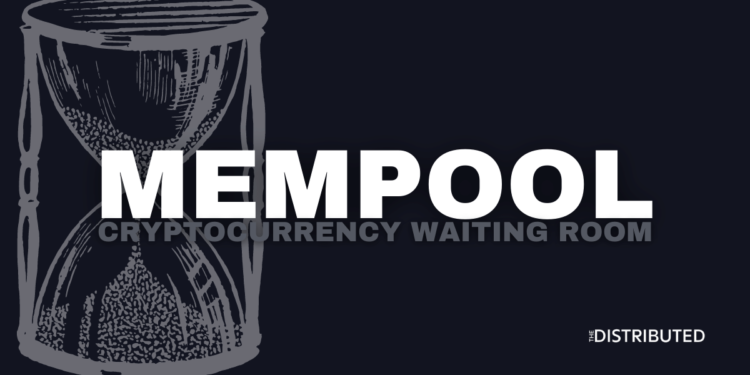What Is A Memory Pool (Mempool)?
A memory pool, or mempool, is the “waiting room” where unconfirmed transactions are held before they’ve been verified on a blockchain ledger. After a node verifies the transaction, it waits in the Mempool until it’s then picked up by a miner and inserted in a block.
Verifying A Transaction From A Mempool
Transactions are not confirmed right away. The memory pool allows transactions enough time to be distributed to various public ledgers.
Nodes verify a transaction by running a series of checks such as; verifying that signatures are correct, outputs don’t exceed inputs, and that funds have not already been spent. If the node is satisfied with the checks, the transaction is accepted and is ready to be put in a block.
Miners will often confirm transactions with higher gas fees attached to them. This is because miners get a percentage of the fees associated with a transaction, and miners are driven by potential profits more than anything. If you needed to have a transaction verified quickly, you could essentially bribe a miner with a high transaction fee.



